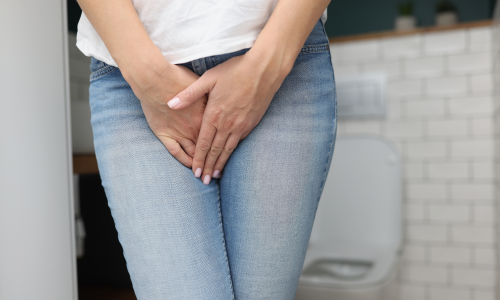What is stress incontinence?
Stress incontinence, also known as exertion incontinence, is a common problem in both men and women. It occurs when urine is involuntarily leaked during physical activities such as coughing, sneezing or exercising. This can be very uncomfortable and embarrassing, but fortunately there are several treatments available.
Causes of stress incontinence
The main cause of stress incontinence is a weakening of the pelvic floor muscles. These muscles support the bladder and urethra. When they weaken, they cannot properly absorb the pressure during stress, which leads to urine leakage. This can happen due to:
- Pregnancy and childbirth
- Overweight
- Chronic cough
- Aging
- Pelvic surgery
Symptoms of stress incontinence
The symptoms of stress incontinence are usually clear and can vary in severity. The most common symptoms are:
- Urinary incontinence during exercise
- Urinary incontinence when sneezing or coughing
- The feeling of a weak bladder
- Unexpected loss of urine with sudden movements
Diagnosis of stress incontinence
To diagnose stress incontinence, a doctor will take a thorough history and perform a physical examination. This may include:
- Urine test
- Urodynamic examination
- Pelvic floor examination
Treatments for stress incontinence
There are several treatments available for stress incontinence, depending on the severity of the symptoms and the underlying causes. Some effective treatments include:
Pelvic floor muscle exercises
Pelvic floor muscle exercises, also known as Kegel exercises, are a first step in the treatment of stress incontinence. These exercises help strengthen the pelvic floor muscles, which improves bladder control.
Medication
In some cases, medication may be prescribed to improve bladder function. This can help reduce urine leakage.
Surgery
For severe cases of stress incontinence, surgery may be necessary. Procedures such as sling surgery or bulk injections can support the urethra and reduce urine leakage.
Lifestyle changes
In addition to medical treatments, certain lifestyle changes can help manage stress incontinence:
- Lose weight
- Doing pelvic floor muscle exercises
- Avoid caffeine and alcohol
- Going to the toilet regularly to empty the bladder
Prevention of stress incontinence
Although not all cases of stress incontinence can be prevented, certain measures can help reduce the risk. Some preventive tips include:
- Do pelvic floor muscle exercises regularly
- Maintaining a healthy weight
- Quit Smoking to Avoid Chronic Cough
- Taking care of good bladder health
Conclusion
Stress incontinence is a common problem that can affect daily life. It is important to take symptoms seriously and seek medical attention. With proper diagnosis and treatment, most people can significantly improve their symptoms and live a normal life. Consult a doctor for personalized advice and a treatment plan that best suits your situation.



















